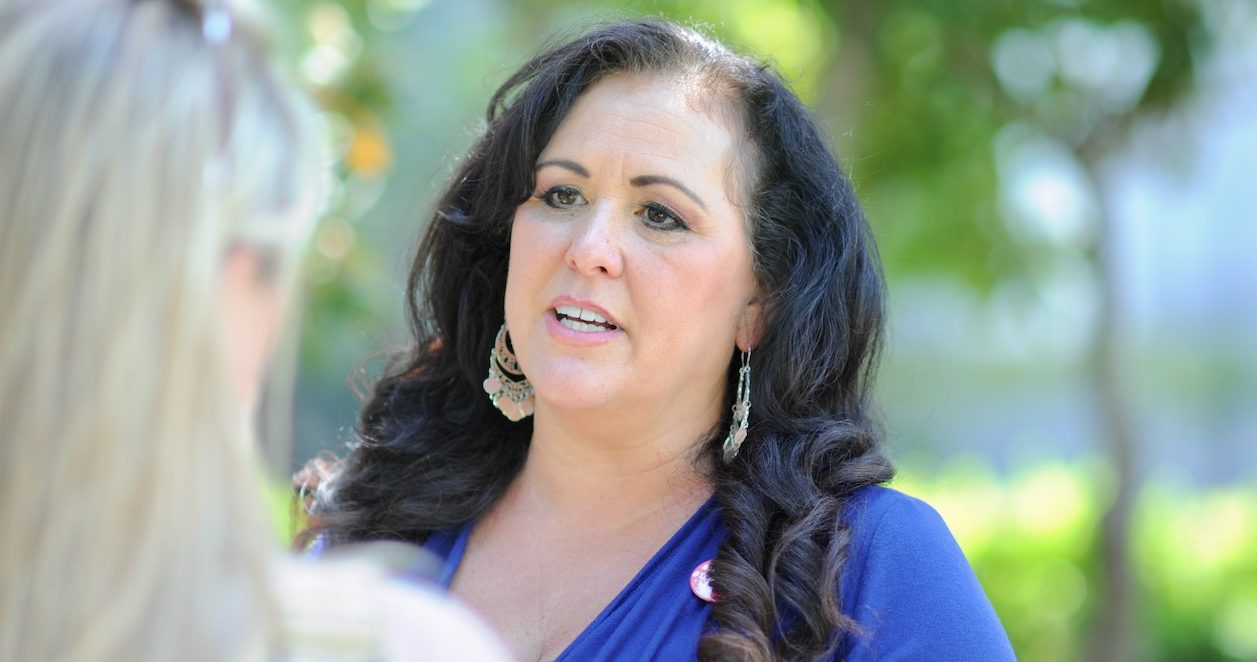
Assemblywoman Buffy Wicks. (Photo: Kevin Sanders for California Globe)
AB 2777: ‘The Sexual Abuse Cover Up Accountability Act’
Under current state law, a civil lawsuit related to sexual assault must be commenced within 10 years
By Chris Micheli, April 17, 2022 2:30 am
Assemblywoman Buffy Wicks is authoring Assembly Bill 2777, which would amend Section 340.16 of the Code of Civil Procedure, which deals with the statute of limitations for sexual assault cases.
Under current state law, a civil lawsuit related to sexual assault must be commenced within 10 years from the date of the last act, attempted act, or assault with the intent to commit an act of sexual assault against the plaintiff or within 3 years from the date that the plaintiff discovers or reasonably should have discovered that an injury or illness resulted from those acts.
Section One of the bill provides that the Act would be known and cited as the Sexual Abuse Cover Up Accountability Act.
Section Two of the bill would amend Code of Civil Procedure Section 340.16 to add a new subdivision (e). First, the bill would provide that any claim seeking to recover damages suffered as a result of a sexual assault or other inappropriate conduct, communication, or activity of a sexual nature could be filed between January 1, 2023 and December 31, 2023. The “revival” of lapsed claims would apply where the applicable statute of limitations has or had expired. The bill language specifies that such a claim “is hereby revived, and a cause of action may proceed.”
Specifically, the bill would revive claims brought by a plaintiff who alleges all of the following:
- The plaintiff was sexually assaulted or was subjected to other inappropriate conduct, communication, or activity of a sexual nature.
- One or more entities are legally responsible for damages arising out of the sexual assault or other inappropriate conduct, communication, or activity of a sexual nature.
- The entity or entities, including, but not limited to, their officers, directors, representatives, employees, or agents, engaged in a cover up or attempted a cover up of a previous instance or allegations of sexual assault or other inappropriate conduct, communication, or activity of a sexual nature by an alleged perpetrator of such abuse.
The bill would provide that failure to allege a cover up as to one entity does not affect revival of the plaintiff’s claim or claims against any other entity.
In addition, within 60 days of the date of service of the initial complaint on any defendant or cross-defendant, the attorney for the plaintiff would be required to file and serve a certificate executed by the attorney declaring all of the following:
- That the attorney has reviewed and researched the facts of the case and reasonably believes that the entity or entities engaged in a cover up or attempted a cover up of a previous instance or allegations of sexual assault or other inappropriate conduct, communication, or activity of a sexual nature by an alleged perpetrator of such abuse.
- That the attorney has consulted with and received an opinion from at least one mental health practitioner who is licensed to practice in this state and is not a party to the action, who the attorney reasonably believes is knowledgeable regarding the effects of sexual assault or other inappropriate conduct, communication, or activity of a sexual nature, who is not treating and has not treated the plaintiff, and who has interviewed the plaintiff and has concluded that there is a reasonable basis to believe that the plaintiff had been subjected to a sexual assault or other inappropriate conduct, communication, or activity of a sexual nature by an alleged perpetrator.
- That the attorney has concluded on the basis of the attorney’s review of the facts of the case and consultation with the mental health practitioner that there is reasonable and meritorious cause for the filing of the action.
Moreover, if a certificate is required, the attorney for the plaintiff must file only one certificate, notwithstanding that multiple defendants have been named in the complaint or may be named at a later time.
The bill would define the term cover up “to mean a deliberate effort to hide or disregard information relating to a sexual assault or other inappropriate conduct, communication, or activity of a sexual nature. This new subdivision includes examples of a cover up. The bill would also define the terms “entity” (basically any type of business entity) and “legally responsible.”
Moreover, the new subdivision would revive any related claims including, but not limited to, wrongful termination and sexual harassment, arising out of the sexual assault or other inappropriate conduct, communication, or activity of a sexual nature that is the basis for a claim pursuant to this subdivision.
Finally, the bill would not revive a claim that has been litigated to finality in a court of competent jurisdiction before January 1, 2023, or a claim that has been compromised by a written settlement agreement between the parties entered into before January 1, 2023.
If an attorney were to violate this subdivision, that violation may constitute unprofessional conduct and may be the grounds for discipline against the attorney.
Section Three of the bill provides that the provisions of this Act are severable and that, if any provision of this Act or its application is held invalid, that invalidity does not affect other provisions or applications that can be given effect without the invalid provision or application.
- General Provisions on Enforcement of Judgments - February 5, 2026
- Fish and Game Management - February 5, 2026
- Support Payments to County Officers - February 4, 2026





Hmm. The party of sex trafficking and child abuse may be building their own gallows.
It would be quicker if Buffy would just name the person or persons that she wrote this VERY specific bill for and be done with it.
Meanwhile, Florida now plans on keeping the ‘evidence’ of said abuse by not excepting rape, incest , sex trafficking, etc.